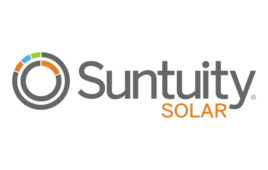The Solar Energy Industries Association (SEIA) is releasing a new tool to increase supply chain transparency and help ensure that all solar components are made ethically throughout the solar value chain.
The Solar Supply Chain Traceability Protocol is a set of guidelines designed to help solar companies meet compliance obligations and provide customers with assurances that their solar products are free of unethical labor practices.
“Solar customers expect their products to be ethically produced, and this protocol helps ensure that solar products coming into the United States are not made using forced labor,” said John Smirnow, SEIA’s VP of market strategy. “Solar is one of the cleanest and most reliable technologies on our grid today, and we hope this tool will give American buyers and leaders confidence at a time when solar energy increasingly supports our need to fuel economic growth and tackle the climate crisis.”
As manufacturers begin using the traceability protocol, it will be regularly reviewed and updated to improve its usability and effectiveness. The protocol by itself will not stamp out forced labor, companies need to go through the steps laid out by the protocol.
In addition to the new traceability protocol, SEIA has finalized an update to its Solar Commitment, which defines common labor, health and safety, environmental and ethical standards and expectations for solar companies. The update modernizes the standard and now covers an expansive list of topics, including guidance on workplace safety and ethical labor practices.
The standard now features recycling and refurbishment best practices, information on energy consumption tracking, procedures companies can follow to avoid the use of conflict minerals in solar products and additional guidance that companies can follow to hold their suppliers to all of these standards.
The Solar Commitment recognizes the need for companies to increasingly take responsibility for every aspect of the solar supply chain from upstream materials to recycling and disposal.
SEIA is also releasing “Solar Buyers’ Guide on Traceability,” which summarizes the protocol and offers key questions that customers, developers, financiers, and other stakeholders should ask suppliers about products in the solar + storage value chain.
On April 30 at 1 pm (ET), SEIA will host a free webinar to discuss the new resources and explain how solar companies can put them into practice.
“This important tool provides a consistent set of guidelines rooted in equity, security and sustainability to thousands of solar companies across the country,” said George Hershman, president of Swinerton Renewable Energy and SEIA Board Chair. “As we at SRE undergo an inventory of our own practices, we can do so with the confidence that we are united with our industry partners in a shared mission to uphold a secure and ethical solar supply chain.”
News item from SEIA





Can you provide links to these new SEIA tools?
https://www.seia.org/research-resources/solar-supply-chain-traceability-protocol
““Solar customers expect their products to be ethically produced, and this protocol helps ensure that solar products coming into the United States are not made using forced labor,” said John Smirnow, SEIA’s VP of market strategy. “Solar is one of the cleanest and most reliable technologies on our grid today, and we hope this tool will give American buyers and leaders confidence at a time when solar energy increasingly supports our need to fuel economic growth and tackle the climate crisis.””
How do you enforce this? Trump put some onerous tariffs on solar PV panels and components like installation and racking products. After all of that, the premium solar PV panels from say LG and at that time Panasonic were going for around $1.50/watt. You could still find equivalent solar PV panels from China at $0.70/watt retail with tariffs. I see this as just another toothless cat, that can’t chase a mouse much less ‘eat it’.